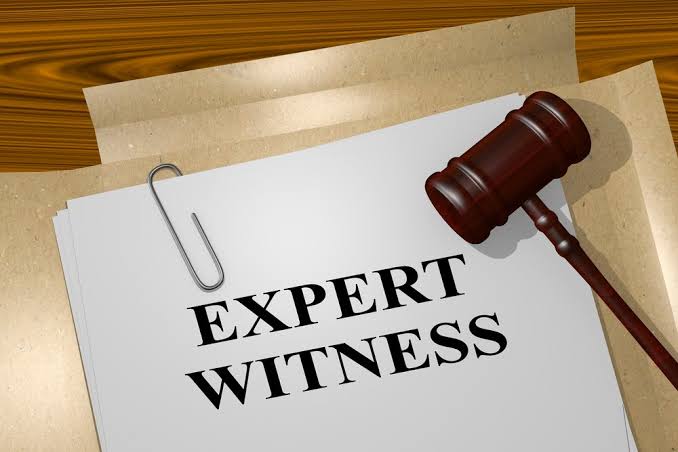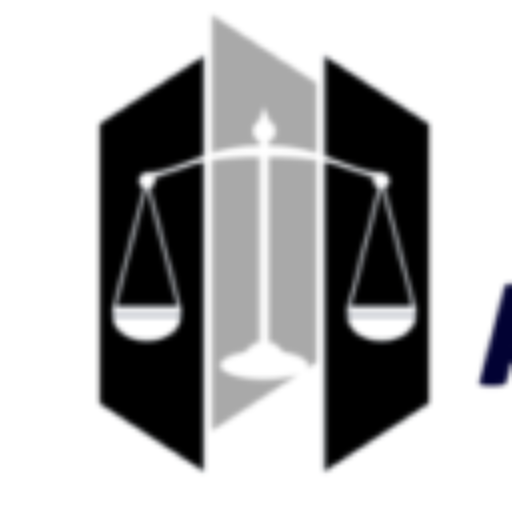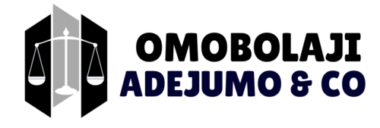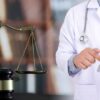An expert witness is a witness qualified by knowledge, skill, experience, training, or education to provide a scientific, technical, or other specialized opinion about the evidence or a fact in issue.In the eyes of the law, an expert witness is one who is specially skilled in the field he is giving evidence. See OMISORE & ANOR v. AREGBESOLA & ORS (2015) LPELR-24803(SC), ETUKA v. NIGERIAN ARMY (2024) LPELR-61947 (CA).

Expert witnesses play a crucial role in medical negligence litigation in Nigeria, as they provide specialized knowledge and opinions to assist the court in understanding complex medical issues. These witnesses are experienced professionals in the medical field who are called upon in court to testify on behalf of either the plaintiff or the defendant in a malpractice case. These medical professionals include; doctors, surgeons and other health care providers, who can provide opinions and analysis on the standard of care provided by the defendant and whether it deviated from accepted medical practices. The expert should at all times stick to scientific facts and deductions and should not be influenced by personal beliefs or opinions that have not been confirmed as the standard principle in the medical profession.
In legal proceedings, expert witnesses are subject to the evidence rules, especially the rules governing hearsay evidence and expert opinion. Hearsay evidence is generally inadmissible in court because in most cases the person giving evidence is not a direct witness present when the negligent act occurred, so it is considered unreliable and lacks the opportunity for cross-examination. However, there are exceptions to the hearsay rule, including expert opinion testimony. The Evidence Act expressly provides thus: “When the court has to form an opinion upon a point of foreign law, customary law or custom, or of science or art, or as to identity of handwriting or finger impressions, the opinions upon that point of persons specially skilled in such foreign law, customary law or custom, or science or art, or in questions as to identity of handwriting or finger impressions are admissible.”
The persons so specially skilled as mentioned in the above subsection are called experts. The Evidence rules govern the admissibility of expert testimony in legal proceedings and it is essential for expert witnesses giving opinion in court to adhere strictly to these rules and provide credible and reliable testimony to support their opinions.
Medical Malpractice Litigation in Nigeria.
The tortious theory of negligence, which was advanced in the case of DONOGHUE v. STEVENSON is the foundation for medical negligence. Medical negligence occurs when a medical practitioner or a healthcare provider performs his duty below the laid down standard of the profession which in turn causes injury to the patients in his care. According to Chukwuneke, medical negligence constitutes an act or omission by a medical practitioner, which falls below the accepted standard of care therefore resulting to injury or death of a patient.
Negligence occurs in almost all healthcare facility in Nigeria and this is largely as a result of institutional deficiencies or in some cases character flaws of the said healthcare providers which ends in patients being exposed to injuries or in some cases death. The high rate of medical negligence on the part of medical practitioners has given rise to a need for medical negligence litigation, as aggrieved patients institute legal actions in order to seek redress for the wrong, they had suffered. Medical negligence can lead to both civil and criminal actions which can be initiated against a doctor individually or by vicariously joining the doctor’s master or employer. It is necessary to prove that there was a provider-patient relationship, that there was a breach of duty, and that the breach led to actual harm. The burden of proof in demonstrating these elements lies with the plaintiff who was harmed because of the medical professional’s error.
In Nigeria, medical negligence cases are governed by both statutory laws and common law principles. The primary legislation that governs medical practice in Nigeria is the Medical and Dental Practitioners Act, which establishes the Medical and Dental Council of Nigeria (MDCN) a body responsible for regulating the practice of medicine in the country. Another of such legislation is the Criminal Code Act and the Penal Code Act which addresses the criminal aspects of medical negligence. Common law principles, specifically the legal doctrine of negligence, also play a significant role in medical negligence cases in Nigeria. The standard of care required of medical practitioners is that of a reasonable and prudent healthcare professional in the same field of practice. Failure to adhere to this standard may lead to legal liability for medical negligence.
Evidence Rules in Nigerian Legal Proceedings.
The rules of evidence in Nigeria are governed by the Evidence Act which provides for different types of evidence utilized during legal proceedings. An important component of these rules is the section on Hearsay evidence. Hearsay evidence typically refers to a statement made outside the court that is presented in court to establish the truth of the statement.
According to Section 37 of the Evidence Act, hearsay evidence is generally inadmissible as evidence in court unless it fits into a recognized exception or is considered admissible under specific circumstances. The rationale behind this is to ensure the dependability and credibility of evidence by demanding witnesses to speak from their direct knowledge instead of merely repeating what others have said.
One setback of hearsay evidence is its potential lack of reliability and accuracy, given that the original source of the statement is not present for questioning and this can cause issues regarding credibility and truthfulness, making it hard for the court to evaluate the precision of the evidence. In R v. Ajala, the court stressed the necessity for caution when dealing with hearsay evidence and warned against placing excessive weight on it when making decisions. The court reiterated the importance of ensuring the accuracy and reliability of court evidence is critical to maintaining the legal process’s integrity. Another disadvantage of hearsay evidence is the possibility of manipulation or distortion of information during transmission from one person to another, which can lead to inaccuracies and misunderstandings in the evidence presented. These inaccuracies can jeopardize the fairness and dependability of legal proceedings.
Expert Opinion as an Exception to Hearsay Evidence.
Expert opinion is a unique exception to the hearsay rule in Nigerian law, which permits experts to offer their specialized knowledge and experience to help the court comprehend intricate or technical matters that go beyond common understanding. According to the provisions of the Evidence Act, expert opinion evidence is considered admissible in court where questions necessitate specialized knowledge, skill, or expertise for a comprehensive response. This provision enables experts to share their professional perspectives within their specific fields, such as medical professionals in cases of medical negligence.
For an expert opinion to be admissible in court, certain prerequisites must be satisfied. Firstly, the expert witness should possess the required qualifications, training and experience in the pertinent field to provide a dependable opinion. The court will evaluate the expert witness’s credibility and proficiency to ascertain their sustainability in providing an opinion on the subject matter at hand. The expert opinion must be pertinent to the disputed issues and should aid the court in reaching a verdict. The expert ought to base their opinion on pertinent facts and data related to the case, supported by sound reasoning. The court will scrutinize the reliability and impartiality of the expert’s opinion to ensure it is founded on trustworthy principles and approaches.
In cases of medical negligence, expert witnesses are often summoned to present their viewpoints on standards of care, causation, and other medically relevant matters. In the case of Okonkwo v. Okagbue & Anor, the Court of Appeal emphasized the importance of expert opinion evidence in medical negligence cases. The court opined that: “expert witnesses must demonstrate their qualifications and expertise in the relevant field to provide reliable and admissible opinion evidence.” Similarly, in Olayiwola v. Olayiwola the court highlighted the requirements for admissibility of expert opinion evidence in Nigerian law. The court emphasized that expert witnesses must base their opinions on sound principles and reliable methodologies to ensure the credibility and reliability of their evidence.
The Court and Medical Expert Witnesses.
The Court of Appeal case of Nwaogwugwu v. Ebigbo in this case, the Plaintiff who underwent a surgical procedure at the Defendant’s hospital where the defendant was the presiding physician, after the surgery the plaintiff developed severe complications which resulted in permanent disability. The plaintiff instituted the suit by claiming that the defendant and the hospital were negligent in the care provided to her during and after the surgery. The plaintiff presented expert witnesses who were medical professional specializing in the same field as the defendant and they testified on the standard of care expected in similar surgical procedures and outlined the ways in which the defendants deviated from these standards. The defendants also presented expert witnesses who argued that the care provided to the plaintiff was within acceptable medical standards and that the complications were unforeseeable and not caused by any negligence on their part. The court after carefully weighing the opinions of all the experts presented in court, gave judgment in favor of the plaintiff, holding the doctor and the hospital liable for medical negligence. The judge relied on the expert witness opinion presented by the Plaintiff to establish the breach of the standard of care by the defendants.
Similarly in the case of Sarah v. UCH, Ibadan the plaintiff filed a medical negligence suit against the University College Hospital, Ibadan for alleged negligence during a surgical procedure. Expert witnesses who were specialized in that field of medical practice were brought to testify on the standard of care and the actions of the medical practitioners involved to determine whether the defendants had deviated from the accepted standard of care. The Supreme Court, in its judgment, considered the testimonies of the expert witnesses crucial to determine the liability of the hospital for medical negligence. The court acknowledged the credibility and expertise of the expert witnesses and relied on their opinion to establish the liability of the hospital for medical negligence. Judgment was given in favor of the plaintiff.
In the case of Adebayo v. St. James Hospital, in this case, the plaintiff sued the defendant hospital for medical negligence, for failing to properly diagnose and treat his neurological condition, resulting in permanent damage to his health. He presented expert witnesses who supported his claim that the hospital had deviated from the standard of care expected in diagnosing and treating his condition. The defendant also presented expert witnesses who argued that the treatment provided to Mr. Adebayo was in line with established medical protocols and that the outcome of his condition was unavoidable given the severity of illness. After considering all expert opinions before the court, the court ruled that the hospital had acted reasonably in diagnosing and treating Mr. Adebayo’s condition and that the damage suffered by the plaintiff was not directly caused by the hospital’s actions.
In the case of Adu v. Ribadu, the plaintiff filed a medical negligence lawsuit against Dr. Ribadu, a surgeon for alleged negligence during a surgery that resulted in complications and further medical treatment expenses. The plaintiff claimed that Dr. Ribadu failed to perform the surgery with reasonable care and skill, leading to the complications. During the trial, both parties presented expert witnesses to testify to the extent of the damage done and the cost implications of the medical negligence. After both expert opinions, the court relied on the expert testimonies to determine the quantum of damages to be awarded to the plaintiff. The court gave judgment in favor of the plaintiff and awarded her a substantial sum in damages for the pain and suffering, medical expenses, and loss of earnings incurred as a result of the negligence of the defendant.
It is evident from the cases above that the role of expert witnesses in medical negligence litigation cannot be overemphasized, and the court should treat expert evidence with respect. In GTB Plc v. Demrowl Int’l Co. Ltd it was opined thus: “the court of law is expected to treat expert evidence with respect and candor. However, where there is some contradiction or something inconsistent in his evidence with normal happenings, a court of law and equity has a duty to reject such a piece of evidence. See Amu v. Amu (2000) 7 NWLR (pt. 663) 164 at 174”. Per OLABODE ABIMBOLA ADEGBEHINGBE, JCA (pp 44-44 Paras D-E).
Similarly, in OLORUNDARE v. MINISTER OF FCT & ORS it was established that: “while it is true in law that where an expert evidence is not contradicted or challenged by another expert evidence, the court may, I will refuse to use the word ‘should’ rely on such expert evidence being the only evidence before it, however, it is also the law that the final arbiter on all matters of weight of evidence and credibility of witnesses is the court and therefore, in law, a court is not bound to accept the opinion of an expert and to act on it. A lot would depend on the circumstances of each case. In some cases, a court may rely on the uncontradicted expert opinion and in some cases, it may not if it finds the expert witness not to have come across as a reliable witness. In law, reliability and credibility of a witness are key to proactive weight and/or value of evidence of a witness, be he an ordinary or expert witness. No court will accord or ascribe any probative weight to a witness who appeared to be unreliable and not credible merely because either he was the sole witness or that he was an expert witness. A court that does that has only failed in its duty but had abdicated its primary duty of evaluation and ascription of probative weight to evidence led before it as the umpire between the parties. See Akusobi v. Obinechie (2004) 2 NWLR (pt.857) 355; County & City Bricks Development Co. Ltd & Anor v. MKC Ltd & Ors (2019) LPELR-46889.” Per BIOBELE ABRAHAM GEORGEWILL, JCA (pp 46-47 paras B-C).
In Ayadi & Ors v. Mobil Producing (Nig) Unltd, the Court of Appeal refused to rely on the evidence of an expert. The Court opined thus: “As to the evidence of PW2 and PW4, though they are experts, the learned trial judge was right when he did not rely on same proving the claims of the appellants, for, as expounded in Ngige v. Obi (2006) All FWLR (Pt. 330) P. 1041 @ 1123-1124, that: ‘A Court is entitled to accept the evidence of an expert if it is credible, particularly if it is not Controverted or challenged and comes from an expert with demonstrable skill. However, the evidence of an expert is generally an aspect of the entire evidence to be evaluated by a court. The trial court must fully be in control of all the evidence before it and must not abdicate its role to perform its primary duty of assessing the evidence and forming its clear opinion in relation thereto, including any expert witness. The court has an option in the matter, an option which it has to exercise judicially and judiciously in the light of other available evidence’. After all, a court is only bound to accept and act on the report of an expert if available and is unchallenged and uncontradicted. See Seismograph Service (Nig) Ltd v. Akporuovo (1974) 6 SC P.119 @ 136” Per IBRAHIM SHATA BDLIYA, JCA (Pp 53-54, Paras E-D).
CONCLUSION.
In conclusion, the role of expert witnesses in medical malpractice litigation in Nigeria cannot be overemphasized. These highly specialized professionals bring extensive knowledge and experience to court proceedings and help determine whether a healthcare provider has breached the duty of care to the patient. With their experience, expert witnesses can provide invaluable insight into complex medical practices and standards and provide the court with important information to make fair and informed decisions. Expert witnesses serve as a crucial link between the medical and legal fields, bridging the gap between medical expertise and legal interpretation. Their testimony in court helps to determine the outcome of cases and provides clarity on complex medical issues. By providing unbiased, evidence-based opinions, expert witnesses play a crucial role in ensuring that justice is served and that patients harmed by medical negligence receive the compensation they deserve. By holding healthcare providers accountable for their actions through expert testimony, the legal systems can help prevent future cases of negligence and promote a culture of accountability and patient safety in the healthcare industry.
Given the critical role that experts play in medical negligence cases, it is important that the Nigerian legal system continues to recognize and prioritize the expertise of these professionals. By supporting and valuing the contributions of experts, the legal system can ensure that patients harmed by medical malpractice have access to fair and equitable remedies. Ultimately, the involvement of experts in medical negligence cases in Nigeria is essential to upholding the principles of justice, accountability and patient safety in the healthcare system.





